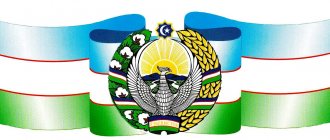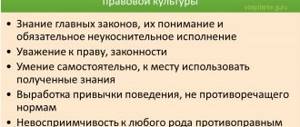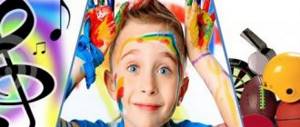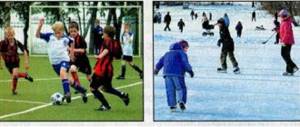Lecture “Personal hygiene rules for schoolchildren”
Guldana
Lecture “Personal hygiene rules for schoolchildren”
«Personal hygiene rules for schoolchildren»
1 Wash your face in the morning and evening, use personal hygiene .
2 Brush your teeth for at least 3 minutes. Your toothbrush should not be too soft.
3 Always wash your hands before eating, after walking and using the toilet. When using the toilet
Students must maintain cleanliness and order, observe the rules of personal hygiene .
4 Always have a clean handkerchief or disposable wipes.
5 For food, use only your own dishes, do not take dirty plates, spoons, cups.
6 Use disposable cups to drink water. Don't leave used ones
cups, throw them in the trash.
7 Keep your clothes and shoes clean.
8 Do not wear the same shoes on the street, at school and at home . Wear a soft one at home
house shoes; for sports activities, use sports shoes.
9 Help the teacher and those on duty in maintaining order in the classroom, help your family in
home cleaning.
10 An important element of personal hygiene is the correct organization of the daily routine. It is determined by the alternation of various types of activity and rest, promotes
maintaining performance throughout the day and preventing fatigue. Failure to comply with the daily routine leads to the development of serious diseases. Adolescents who do not follow a daily routine experience delays in mental and physical development. Maintaining a daily routine is not only a condition for the formation of good mental and physical health, but also the development of a stereotype of behavior during work and rest. Follow your daily routine!
A daily routine is a rational distribution of time for all types of activities and rest during the day. Its main goal is to ensure high performance throughout the entire waking period.
The regime is built on the basis of the biological rhythm of the body’s functioning.
For example, an increase in efficiency is observed from 11 to 13 hours.
The second rise at 16-18 hours is of lower intensity and duration.
The main elements of a schoolchild's daily routine are : educational activities at school and at home , active recreation with maximum exposure to the fresh air, regular and adequate nutrition, physiologically adequate sleep, free activity of individual choice.
During the school period, the child experiences growth processes and complex restructuring
metabolism, activity of the endocrine system, brain, these processes are associated with the final maturation and formation of an adult.
The diet of schoolchildren depends on the characteristics of schooling , the student’s , sports, social work and other factors.
the schoolchildren's diet is hot meals, so hot meals should not be replaced with buffet products.
A student’s weekly routine should include:
taking a bath or visiting a sauna, cutting fingernails and toenails and cleaning the nail bed, cutting and washing hair.
Each child must have personal supplies : towels, toothbrush, washcloth, sponge, handkerchiefs, etc.
After bathing, you need to change your underwear and bed linen, and change your socks daily.
clothing should be clean , neat, light, appropriate to body size, time of year, weather, type of activity, protect from hypothermia and overheating, shoes should be soft, clean, separate for indoors and outdoors, and appropriate to the size of the foot.
Personal hygiene is taking care of your body and keeping it clean.
The skin protects the human body from disease. When a child runs, jumps and gets hot, beads of sweat appear on his skin. In addition, the skin has a thin layer of fat, sebum. If the skin is not washed for a long time, then oil and sweat accumulate on it, on which dust particles are retained. This makes the skin dirty, rough and no longer protects the body. Dirty skin can be harmful to health and, in addition, dirty, sloppy people are always unpleasant to everyone around them. Therefore, the skin needs to be washed and cared for.
Every morning all children must wash themselves: wash their face, hands, neck, ears. You also need to wash your face after walking and in the evening. To wash, you need to prepare soap, a towel, and if there is no tap and washbasin, then a jug of water and a basin;
• The towel should be hung on a hanger or nail, and not draped around your neck
or shoulders, because splashes will get on the towel when washing, and it will be wet and
dirty;
• It is best to wash yourself undressed to the waist or in panties and a T-shirt;
• First, wash your hands well with soap and water from the tap or
jug, but not in the basin. Hands should be washed once or twice on both sides and
between the fingers, rinse off the soap suds well, check the cleanliness of the nails;
Then wash your face, neck, ears with clean hands;
• After washing, pat dry with a clean, dry towel. Everyone has it
The child must have his own towel.
Before going to bed, it is necessary to wash your feet because the skin on your feet sweats especially heavily and dirt accumulates. Rarely washing feet, wearing dirty socks, stockings contributes to
the appearance of diaper rash and abrasions, and also predisposes to fungal diseases. For this reason, it is not recommended to wear or try on someone else's shoes. In the bathhouse, pool, and on the beach you need to wear special slippers.
After washing your feet, dry them thoroughly with a special towel. Stockings and socks
change at least every other day. At home, change into house shoes or slippers.
Water procedures in the morning and evening before bed are not only hygienic , but also
hardening value, have a good effect on the nervous system, promote rapid
falling asleep.
The entire body must be washed at least once a week at home in the bath, shower or sauna. In order to remove fat and dirt from the skin, you must wash with warm water and rub your body with a washcloth and soap. After washing, you should put on clean underwear.
You need to wash your hair very carefully, because it accumulates on and between them.
a lot of sebum, dirt and dust. It is easier to care for short hair: it is better
washed. Therefore, it is advisable for boys to cut their hair short, especially in the summer. Girls with long hair need to wash their hair at least once a week, and after washing, comb it thoroughly only with your own and always a clean comb.
Fingernails and toenails also require care. Once every 2 weeks they are necessary
trim carefully because dirt usually accumulates under long nails,
which is difficult to remove. In addition, such nails can scratch your skin and
to others. Dirty nails are a sign of a sloppy, sloppy person who
does not observe the rules of personal hygiene . Under no circumstances should you bite your nails!
It is especially important to keep your hands clean. (The child needs to explain that)
He takes
various objects : pencils, pens, books, notebooks, balls, toys, strokes animals (cats, dogs, takes hold of door handles, touches various objects (handles, chains, hooks, etc.)
in toilet rooms. All these objects contain dirt, often invisible to the eye and it remains on the skin of the fingers. If you take food products (bread, apples, sweets, etc.) with unwashed hands, then this dirt gets first into the mouth and then into the body. With dirt
Various are transmitted from a sick person to a healthy person. Therefore, you need to wash your hands before eating, after visiting the toilet, after any contamination (cleaning the room, working in the garden, playing with animals, etc.)
and before going to bed. It is absolutely unacceptable to put your fingers in your mouth.
Every child should keep their teeth clean and take care of them, because teeth affect a person’s health, mood, facial expressions and behavior. Nice to see how
beautiful teeth transform a person and, on the contrary, leave an unpleasant impression
a man with rotten teeth.
The most common dental disease is caries - tooth decay with
the formation of a cavity in it. In this case, severe pain occurs from taking cold or
hot, sour or salty foods. If such a tooth is not filled first
diseases, then a complex inflammatory process develops inside the tooth with damage to the dental nerve, root and periosteum. Carious teeth, like other foci of chronic inflammation, can cause sinusitis, tonsillitis, otitis media, meningitis, as well as rheumatism, bronchial asthma, and kidney disease. If you have carious teeth, food enters the stomach poorly chewed and poorly saturated with saliva. Such food mechanically irritates the walls of the intestines and stomach and is digested more slowly. Chronic gastritis, spastic colitis, abdominal pain, constipation, etc. occur.
As a rule , caries is observed in children older than 2 - 3 years. Immediate cause
Dental caries is the rotting of food debris stuck between the teeth. As a result of putrefactive fermentation of leftover food, children develop bad breath and tooth decay begins. The development of dental caries is favored by malocclusion and dentition disorders.
Malocclusion often develops due to thumb sucking or is
a consequence of congenital predisposition.
Personal hygiene includes household hygiene issues , primarily maintaining clean air in the home, caring for clothing and bedding, and creating normal conditions for sleep and rest.
The air in a living space is easily polluted, which increases the content of microbes. Ventilation can reduce air pollution by 3-5 times. It should be done in winter at least 3 times a day (in the morning, during cleaning and before bed)
lasting at least 30 minutes.
Through ventilation is most effective. If you have stove heating, it is advisable to combine the heating of the stoves with simultaneous ventilation. The most favorable temperature in residential premises is 18 - 20 and relative humidity 30 - 60%.
To avoid dampness, you should avoid drying laundry in living areas. Cleaning should be done wet (with a damp cloth, brush)
or using a vacuum cleaner.
Dry sweeping causes large amounts of dust and germs to rise into the air. From an early age, children should be taught to:
• always wipe your feet when entering a room, and change into replacement shoes at home;
• ventilate your room during the day and before going to bed, and at school during breaks, ventilate the classroom;
• systematically wipe off dust and put away your
• room;
• keep your workplace, books, notebooks, toys in order;
• make the bed carefully and quickly and air it daily.
It is completely unacceptable to sit down, much less lie down, on a bed in outerwear,
keep your shoes on and place pets on the bed. For animals kept in
home, it is necessary to allocate a special place, allocate dishes, a comb, and bedding.
In cities, walk dogs in places specially designated for this purpose. In the countryside
area, do not bring newborn animals into the house (calf, lamb, foal and
etc.) Do not pet or touch stray or other people's cats and dogs. If you are bitten by an animal, immediately consult a doctor or an adult.
In many cities and towns, people use tap water, which
is cleaned of impurities using special treatment facilities and devices. In addition, tap water is chlorinated, and pathogenic microbes die in it. But before drinking this unboiled water, it needs to sit for several hours in a decanter, tank, or bucket. In the spring, when the snow melts, the water becomes polluted, and the tap water also becomes polluted, its color and taste change. At this time, water can pose a danger to human health. That is why we must not forget that every spring you cannot drink raw water, but only boiled water. Boiling neutralizes water and makes it safe for health.
It is completely unacceptable to swim in polluted water bodies, overgrown ponds, sewage drainage areas, or livestock watering areas.
Therefore, it is necessary to use these hygiene skills
washing your hands in a timely manner, brushing your teeth, carefully storing your clothes, etc.).
Nail cutting
Fingers, hands and toes require high-quality care and hygiene. Once every 1.5-2 weeks it is necessary to trim your nails so that dirt does not accumulate in them, which will be much more difficult to remove than removing excess clean nail plate. Long nails can scratch yourself and other people around you. A child's unkempt hands indicate his sloppiness and lack of parental attention. If a little person constantly bites his nails, it is imperative to rid him of this bad habit, otherwise germs and other pathological microorganisms will enter the gastrointestinal tract and other organ systems.



